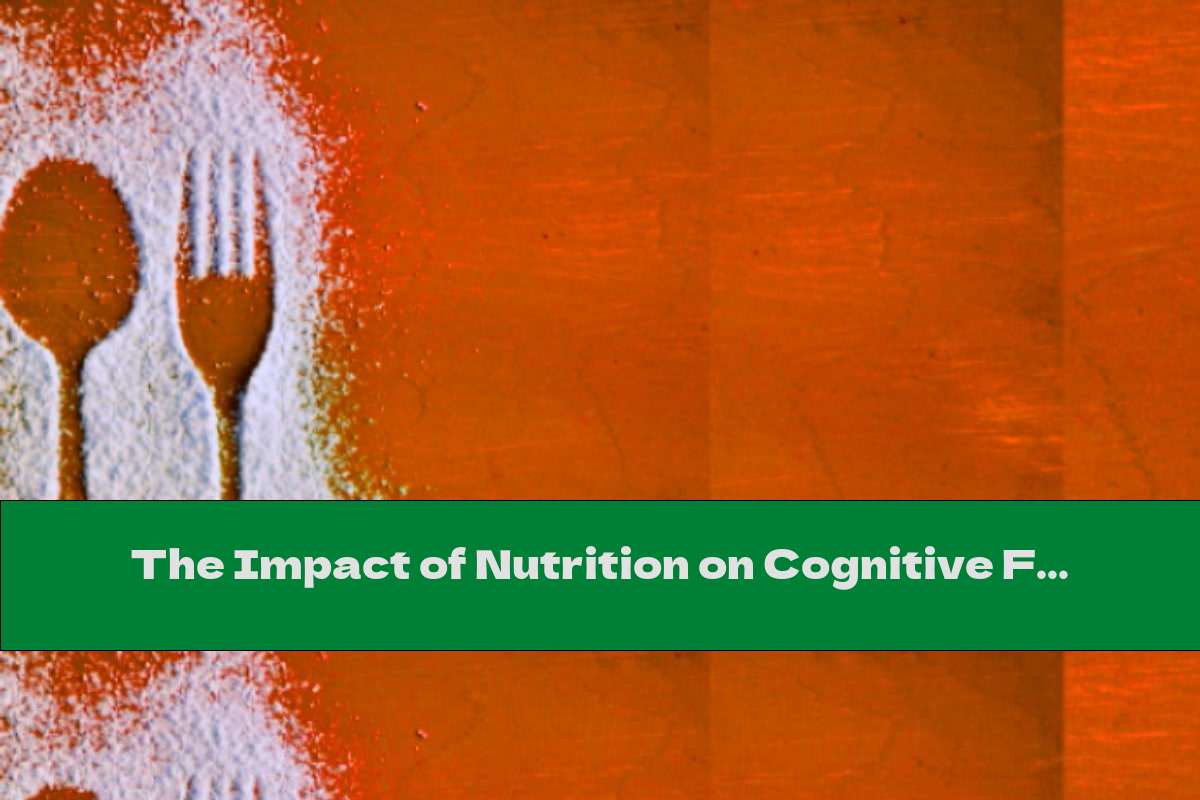The Impact Of Nutrition On Cognitive Function
 Author: Nia Rouseberg
Time for reading: ~3
minutes
Last Updated:
February 21, 2026
Author: Nia Rouseberg
Time for reading: ~3
minutes
Last Updated:
February 21, 2026

CHAPTERS (Table Of Contents)
Nutrition plays an important role in overall health, and is a major contributor to cognitive functioning. Eating a balanced diet with the right nutrients can help improve mood, memory, and concentration.
Nutrition plays an important role in overall health, and is a major contributor to cognitive functioning. Eating a balanced diet with the right nutrients can help improve mood, memory, and concentration. This article will explore the impact of nutrition on cognitive function by examining how certain dietary habits affect brain health and performance. It will also provide guidance on incorporating specific foods into your diet to support better mental health. Finally, it will discuss some strategies to help those struggling with maintaining a balanced diet.
By understanding the impact of nutrition on cognitive function, people can develop healthier eating habits that support improved mental wellbeing. With the right diet, anyone can have better focus, increased energy levels and improved memory. Knowing what foods to eat and how to create a balanced diet is the key to unlocking better mental health.
The Role of Nutrition in Cognitive Function
Eating a balanced diet with the right nutrients is essential for supporting cognitive performance. Consuming specific vitamins and minerals helps improve brain functioning, decrease stress levels, and keep one’s mood stable. Nutrients like omega-3 fatty acids are particularly important for brain health since they help reduce inflammation in the body and protect against neurodegeneration in aging adults. Eating a diet rich in antioxidants can also help protect against oxidative stress, which is linked to cognitive decline.
Nutrients Essential for Supporting Cognitive Performance
Various vitamins and minerals are essential for supporting cognitive performance. The B-Vitamins, such as thiamin, riboflavin, and folate, play an important role in supporting healthy brain function. Vitamin C and E can help protect against oxidative damage while zinc helps reduce inflammation in the body. Magnesium is another key nutrient that supports overall health, including mental wellbeing. Omega-3 fatty acids are also important for improving cognition since they help decrease inflammation in the body and support better communication between neurons. Foods like fish, nuts, leafy greens, whole grains, beans, and dairy are all good sources of these nutrients.
Risks Associated With Dietary Habits and Cognition
Certain dietary habits can pose a risk to cognitive functioning. Eating too much processed or sugary foods can increase inflammation in the body, which is linked to mental decline. Excessive caffeine consumption can also have an adverse effect on mood and concentration. Additionally, consuming too much salt has been associated with impaired memory performance. Therefore, it is important to practice mindful eating habits that support overall health and better mental wellbeing.
Strategies For Maintaining a Nutritionally Balanced Diet
Maintaining a balanced diet can be challenging for some people, but there are ways to make it more manageable. Incorporating a variety of nutrient-rich foods into meals can help ensure the body is getting all the essential vitamins and minerals it needs. Meal planning and preparing food in advance can help save time and reduce stress when it comes to eating healthy. Additionally, drinking plenty of water throughout the day helps keep one’s energy levels up and supports better cognitive performance.
Conclusion
Nutrition plays an important role in overall health, especially when it comes to cognitive functioning. Eating a balanced diet with the right vitamins and minerals can help improve mood, memory, and concentration. Understanding the impact of nutrition on cognition is key to creating healthier dietary habits that support mental well-being.
By incorporating specific foods into their diet, people can unlock better mental performance while avoiding potential risks associated with unhealthy eating habits.
References:
1. Pazzagli, M., et al. (2015). Cognitive Performance and Diet Quality: A Systematic Review of Randomized Controlled Trials Investigating the Effect of Dietary Interventions on Cognitive Performance in Healthy Subjects. Nutrients, 7(5), 3462-3489.
2. Ojeda, N., & Cunha, G.P. (2019). Omega-3 Fatty Acids and Mood Disorders: A Brief Review. Frontiers in Psychiatry, 10, 877-887.
3 .Hamidi Aliabadi, S., et al.( 2019). The Impact of Magnesium on Physical and Mental Health: An Update
Related Articles
- The Ultimate Guide to Hickory Smoked Bacon in Nutrition and Healthy Eating
- Fruitskewers in Honey Syrup: Nutritional Benefits and Recipes
- The Ultimate Guide to Buffer 500 in Nutrition: Benefits and Usage
- Nutritional Benefits of Fruit Skewers in Honey Syrup: A Delicious and Healthy Recipe
- Nutrition Guide: Fruitskewers in Honey Syrup - Benefits, Recipes, and More